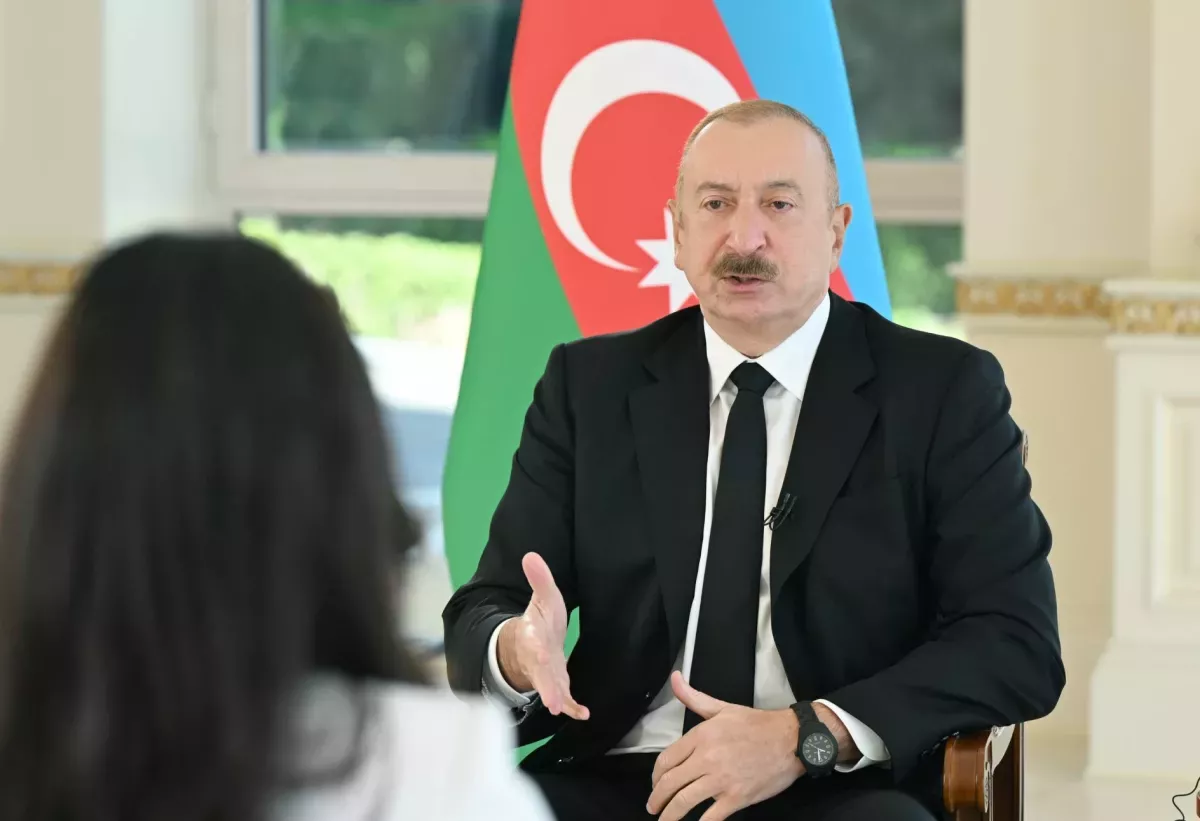Legal demise of OSCE Minsk Group marks another diplomatic triumph for Azerbaijan Peace in the South Caucasus is inevitable
On September 1, the Council of Ministers of the Organization for Security and Co-operation in Europe (OSCE) adopted a decision to terminate the Minsk Process and its related structures, marking yet another diplomatic success for the Azerbaijani state. This decision also represents the logical outcome of the Washington negotiation format involving the leaders of Azerbaijan and Armenia, with the participation of the U.S. President, which became a turning point in the regional politics of the South Caucasus and, more broadly, in the system of international relations.
On August 8, 2025, in Washington, during a meeting between Ilham Aliyev, Donald Trump, and Nikol Pashinyan, the Foreign Ministers of Azerbaijan and Armenia, Jeyhun Bayramov and Ararat Mirzoyan, initialled the draft Agreement on the Establishment of Peace and Interstate Relations between the Republic of Azerbaijan and the Republic of Armenia and signed a joint appeal to the OSCE Chair-in-Office, requesting the closure of the OSCE Minsk Process.
In essence, this development has put a definitive end to the more than 30-year history of the OSCE Minsk Group’s fruitless existence. Its stated mission was to facilitate a peaceful settlement of the conflict between Armenia and Azerbaijan through the co-chairs representing the United States, Russia, and France. However, throughout its entire activity, the Minsk Group — despite the UN Security Council resolutions that recognised the occupation of Azerbaijani territories and demanded the withdrawal of Armenian armed forces — consistently avoided implementing these decisions. Instead of condemning the aggressor state, it limited itself to declarative statements calling for peace, directed at both sides for reasons known only to itself.
During this entire period, the OSCE Minsk Group failed to take a single step towards the de-occupation of Azerbaijani territories, thereby disregarding the norms of international law. It ultimately turned into a mechanism for preserving the conflict rather than resolving it

But, as the saying goes, time and history have put everything in its rightful place. Azerbaijan’s unequivocal victory in the 44-day Second Karabakh War and the brilliantly executed one-day anti-terrorist operation in Karabakh put an end to the occupation of Azerbaijani lands. As a result, the OSCE Minsk Group ultimately lost even the formal grounds for its existence.
President of Azerbaijan Ilham Aliyev has repeatedly addressed this matter. In March 2023, at the opening ceremony of the 10th Global Baku Forum titled “The World of Today: Challenges and Hopes”, the head of state delivered a clear message to the international community, stating that the OSCE Minsk Group had sought to keep the Karabakh conflict frozen indefinitely.
“In 1992, after the conflict started, the OSCE created the Minsk Group. But, unfortunately, for 28 years, Minsk Group did not produce any results. And it seemed to us at the end of the negotiation process that they just wanted to freeze the situation. They wanted to make this conflict frozen forever. But, we did not agree with that. We did what we considered proper to do, using our right to self-defense, the UN Charter, particularly Article 51. We liberated our territories by force. This was our legitimate right,” Ilham Aliyev stated.
Last year, during a meeting with representatives of the parliaments of Turkic states, the President of Azerbaijan once again underlined the futility of this structure:
“There is no need for the Minsk Group and it is not functioning now. We will not allow it to operate de facto. It remains for it to be canceled de-jure, legally, and this will show how sincere Armenia is. If Armenia prefers to maintain the Minsk Group, then their territorial claims against us will be continued.”
In a recent interview with Al Arabiya, President Aliyev stressed that Baku had set the condition of dissolving the Minsk Group “in the very first stages of negotiations,” and the basis for this was Armenia’s official recognition of Karabakh as part of Azerbaijan.
“So when Armenia officially recognizes Karabakh as part of Azerbaijan, and when they say that the conflict is over, that means that the legal existence of the Minsk Group becomes absurd. And if they insist on keeping it alive, that means that they still have territorial claims to Karabakh,” Aliyev said, noting that it took Baku “a lot of time and effort” to convince Yerevan to send a letter to the OSCE requesting the dissolution of the Minsk Group.

Thus, the dissolution of the OSCE Minsk Group means that yet another obstacle on the path to signing a peace agreement between Baku and Yerevan has been removed. Now Armenia faces the task of fulfilling the final key requirement of Azerbaijan’s peace agenda — to introduce constitutional amendments eliminating claims against the sovereignty and territorial integrity of the Republic of Azerbaijan.
In this regard, the head of the Azerbaijani state made it absolutely clear in his interview with Al Arabiya: “There is still a provision in the Armenian constitution that casts doubt on Azerbaijan’s territorial integrity. So, they will make an amendment, as far as we understand. As soon as this amendment to the constitution is made and territorial claims to Azerbaijan are deducted from the constitution, the formal peace agreement will be signed.”
All the more strange and, to put it mildly, inappropriate was the statement recently made by Ararat Mirzoyan on Armenian Public Television: “The constitution was not discussed in Washington, and we have no obligation to any third country to change our constitution.”
Yet, as the events of yesterday demonstrated, peace in the region has come one step closer, and the dissolution of the notorious OSCE Minsk Group showed that there is no turning back for Armenia on this path. Sooner or later, despite the pendulum swings of Armenian foreign policy, Yerevan will have to fulfil Azerbaijan’s key requirement, for not only the realisation of the peace agenda depends on it, but also the future of Armenian statehood itself.








